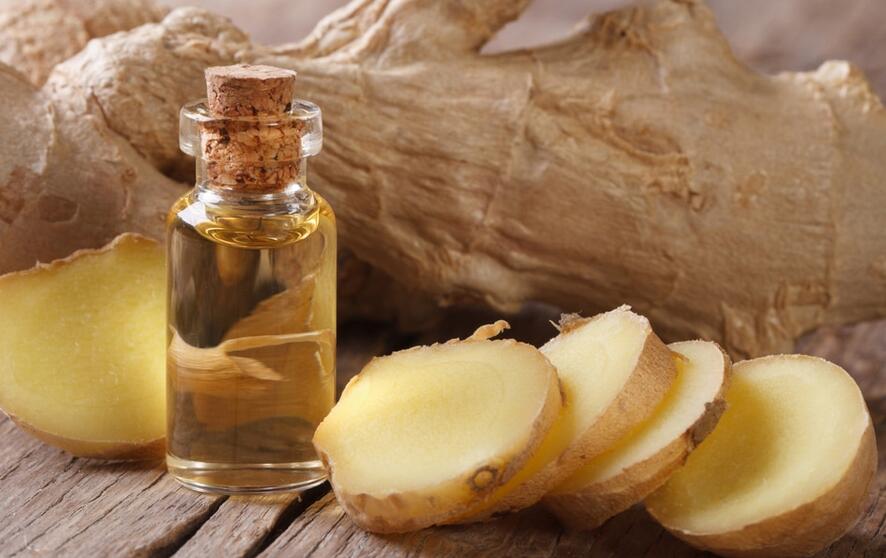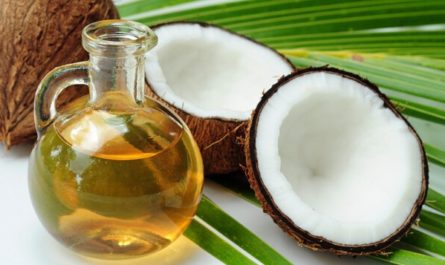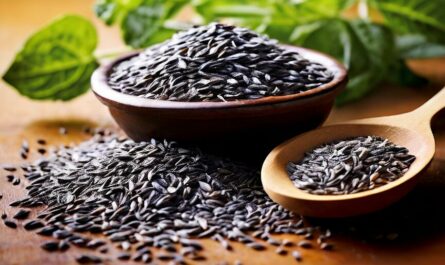Ginger is a spice that has gained popularity in recent years. This is not only for its pungent aroma and unique flavor but also for its potential health benefits. Ginger root has been used for centuries in traditional medicine to alleviate various ailments. In this article, we will discuss 26 fantastic health benefits of ginger and how to incorporate Ginger into your diet.
What is Ginger?
Ginger, scientifically called Zingiber officinale, is a plant species that produces a flowering shoot. Its rhizome or root is renowned as a versatile spice with multiple culinary applications.
This versatile spice can be consumed in various forms, including fresh, dried, powdered, oil, and juice. Ginger is a staple ingredient in Asian cuisine, where it is used to infuse distinctive flavors in dishes such as curries, soups, and dressings.
Additionally, ginger is used in sweets and alcoholic beverages such as ginger cookies, ginger beer, and wine, adding a spicy kick to their taste.
Today, ginger has earned a spot on the FDA’s list of generally safe foods, and its applications have extended beyond culinary usage. The spice’s unique taste and aroma make it an ideal ingredient to mask the bitter flavor of some medicines, such as cough syrups.
Ginger’s medicinal properties, including anti-inflammatory and anti-nausea effects, make it a popular natural remedy for various ailments.
Nutrition Facts of Ginger
According to the USDA FoodData Central, one tablespoon (5 grams) of fresh ginger root contains:
- 4.8 calories
- 1.07 grams of carbohydrates
- 0.11 grams of protein
- 0.05 grams of fat
- 0.1 grams of fiber
- 1.3 milligrams of vitamin C (2% of the Daily Value, or DV)
- 0.01 milligrams of vitamin B6 (1% DV)
- 0.01 milligrams of riboflavin (1% DV)
- 0.04 milligrams of niacin (1% DV)
- 2 milligrams of iron (11% DV)
- 5 milligrams of magnesium (1% DV)
- 6 milligrams of phosphorus (1% DV)
- 18 milligrams of potassium (0.4% DV)
- 0.04 milligrams of zinc (0.3% DV)
- 1 milligram of sodium (0.04% DV)
Moreover, ginger contains several antioxidants, anti-inflammatory compounds, and active compounds such as gingerol, shogaol, and zingerone, which provide numerous health benefits.

26 Amazing Health Benefits of Ginger
Here are 26 health benefits of ginger and the scientific evidence behind them.
1. Full of vitamins and nutrients
Ginger is a highly nutritious spice that is packed with vitamins and minerals. It contains a range of vitamins, including vitamin C, vitamin B6, and vitamin E. Additionally, it is a good source of minerals like magnesium, phosphorus, and potassium.
Vitamin C is an essential nutrient that supports a healthy immune system and helps the body absorb iron from food. Vitamin B6 plays a role in producing the neurotransmitters serotonin and norepinephrine. In addition, Vitamin E is a potent antioxidant that helps protect the body from damage caused by free radicals.
2. Relieves Nausea
Ginger has been traditionally used as a preventive measure for motion sickness and seasickness. Moreover, a study published in Nutrition Journal found that ginger may help relieve pregnancy-related nausea. While it may not be as effective in treating vomiting, it is still an excellent option for pregnant women as it does not show any side effects.
Ginger’s quick absorption and rapid regulation of body functions also help cure nausea in people who have undergone surgeries. Additionally, since nausea is a symptom of migraines, ginger can also help manage migraines.
3. Treats Cold and Flu
Ginger has long been a natural remedy for treating cold and flu symptoms. It contains anti-inflammatory and antiviral compounds, making it famous for boosting the immune system and fighting infections.
Ginger can help alleviate common cold and flu symptoms such as sore throat, cough, and congestion. The warming properties of ginger can also help stimulate circulation and promote sweating.
A study published in the Journal of Ethnopharmacology suggests fresh ginger can help alleviate sore throat and coughing. You can make ginger tea by boiling sliced ginger in water for a few minutes and then straining it.
4. Aids in Digestion
Ginger is well-known for its ability to aid digestion and relieve digestive discomfort. The anti-inflammatory compounds found in ginger can help reduce inflammation and irritation in the gut.
At the same time, the active compounds in ginger can also help stimulate the digestive system and promote the production of digestive juices and enzymes.
Research has shown ginger can help alleviate digestive issues, including bloating, gas, indigestion, and constipation.
5. Reduce Stomach Ulcers
Ginger may prevent the occurrence of ulcers, which are generally characterized by bleeding and acute gastric irritability. A study published in 2016 in the World Journal of Gastrointestinal Pharmacology and Therapeutics found that ginger is very effective in inhibiting the growth of H. pylori bacteria, which is ulcerogenic, thus keeping your stomach healthy.

6. Reduces Arthritis Pain
Ginger has anti-inflammatory properties that can help reduce joint pain associated with arthritis. It can improve movement in knee inflammation, osteoarthritis, and rheumatoid arthritis.
A study published in the Arthritis & Rheumatism journal shows that gingerol, a compound present in ginger, is responsible for its anti-inflammatory benefits.
7. Relieves Asthma
Ginger has been used traditionally to treat respiratory disorders, and recent studies have also seconded its potential anti-inflammatory property. Zerumbone, an active compound in ginger, may help relieve asthma. Research shows that allergic airway inflammation is majorly caused by Th2 dominance, and ginger can successfully suppress it.
8. Aids in Liver Protection
Ginger is beneficial for people suffering from tuberculosis and helps prevent liver damage. Animal studies have demonstrated that it can protect against liver-damaging cadmium poisoning, which occurs due to the ingestion of cadmium. Its essential oil also protects against non-alcoholic fatty liver disease often caused by obesity.
9. Aids in Weight Loss
Animal studies show that ginger may aid in weight loss by helping to accelerate metabolism and manage obesity. It may also increase exercise endurance capacity, which can help you work out well and get back into shape. Ginger may also have a thermogenic effect on the body, helping you burn more calories.
10. May Improve Cognition
Research suggests that ginger can help delay the onset of neurodegenerative diseases such as dementia, Parkinson’s, and Alzheimer’s by reducing oxidative stress and inflammation.
Additionally, a study published in Evidence-Based Complementary and Alternative Medicine found that ginger improved cognitive function in middle-aged healthy women, indicating that it can improve cognitive decline among the elderly.
11. Relieves Muscle Pain
Ginger is well-known for reducing muscle pain and soreness caused by exercise. The potentially anti-inflammatory properties of this root are to be credited for this benefit. A study found that daily consumption of raw or heat-treated ginger resulted in moderate-to-large reductions in muscle pain following exercise-induced muscle injury.
12. Helps Manage Dysmenorrhea
Dysmenorrhea, or painful menstrual cramps, is a common condition that affects many women. Ginger has been found to have pain-relieving properties and may be effective in managing dysmenorrhea.
Research has shown that ginger contains compounds that have anti-inflammatory effects and can help reduce pain and inflammation in the body. One study found that consuming ginger supplements for three days during menstruation helped reduce the severity of menstrual cramps in women.
13. Lower Cholesterol Levels
High cholesterol levels in the blood can increase the risk of heart disease and other health problems. Ginger has been found to have cholesterol-lowering properties and may effectively reduce cholesterol levels. One study found that consuming ginger supplements for 12 weeks helped reduce LDL cholesterol levels in people with high cholesterol.

14. Control Diabetes
Ginger may help regulate blood sugar levels in people with type 2 diabetes. According to a research study published in the International Journal of Endocrinology Metabolism, glycemic and lipid abnormalities lead to long-term complications in diabetics.
To improve insulin resistance and control diabetes, consider adding ginger to your diet. Another study published in the journal Complementary Therapies in Medicine demonstrated that daily consumption of three one-gram capsules of ginger powder for eight weeks is helpful for patients with type 2 diabetes.
15. Improve Dental Health
Maintaining good oral hygiene is crucial to overall health. The presence of gingerol in ginger may help inhibit bacterial, viral, and fungal infections, making it a potentially powerful tool in the fight against oral pathogens.
This means ginger may help keep your teeth and gums healthy by killing bacteria that can cause tooth decay and gum disease. Additionally, ginger’s antibacterial properties may help prevent urinary tract infections (UTIs), bronchitis, and pneumonia.
16. Alleviate Diarrhea
Diarrhea can be a painful and inconvenient condition. Fortunately, ginger has been used for centuries to help alleviate this discomfort. Ginger may work to prevent stomach spasms and gas, common causes of diarrhea.
In China, ginger powder has been used as a traditional treatment for diarrhea for thousands of years, and modern scientists have found evidence to support its effectiveness in treating this condition.
17. Increase Sexual Activity
Ginger has also been used as a potential aphrodisiac for centuries. It’s said to increase sexual desire and activity, making it a popular ingredient in many cultures’ traditional remedies.
Ayurveda, a form of traditional Indian medicine, mentions ginger as an aphrodisiac in its ancient texts. In addition, ginger may also help increase blood circulation, which can positively affect sexual function.
18. Reduces Inflammation
Research has shown that ginger contains compounds that have anti-inflammatory effects and can help reduce pain and inflammation in the body. One study found that consuming ginger supplements for 11 days helped reduce markers of inflammation in people with osteoarthritis.
Ginger has also been found to have antioxidant effects, which can help protect against the damage caused by free radicals and reduce inflammation in the body.
19. Helps with irritable bowel syndrome
Irritable bowel syndrome (IBS) is a common digestive disorder that can cause uncomfortable symptoms, including abdominal pain, bloating, and changes in bowel movements. Ginger has been found to have properties that may help alleviate symptoms of IBS.
Research has shown that ginger can help reduce gut inflammation, which may benefit people with IBS. Additionally, ginger can help alleviate symptoms such as abdominal pain and bloating.
20. Fights cancer
Research has shown that ginger contains anti-inflammatory and antioxidant compounds, which can help protect against cancer. These compounds can also help inhibit the growth and spread of cancer cells.
Several studies have found that ginger extract may effectively reduce the growth and spread of cancer cells in various types of cancer, including ovarian, pancreatic, and prostate cancer.
21. Boosts Immune System
Ginger can help boost the immune system. It contains compounds such as gingerols and shgaols which have anti-inflammatory and antioxidant properties that can help strengthen the immune system.
Additionally, ginger has been shown to have antimicrobial properties that can help fight off infections and prevent illnesses.

22. Alleviates Migraines
Ginger has been shown to alleviate migraines. It contains anti-inflammatory and analgesic compounds, which may help reduce the severity and duration of migraines.
Additionally, ginger has been shown to have a calming effect on the brain and can help reduce nausea and vomiting, common symptoms of migraines.
23. Relieves menstrual pain
Ginger may help reduce the levels of prostaglandins in the body, thereby aiding in relieving cramps and other forms of discomfort and pain during menstruation.
High levels of prostaglandins contribute to increased menstrual cramps, and ginger can help manage them. A report published in ISRN Obstetrics and Gynecology also suggests that ginger can help reduce the severity of mood and behavior during PMS.

24. Supports bone health
Maintaining strong and healthy bones is essential for overall health and mobility, especially as we age. Ginger contains a small amount of calcium, magnesium, and phosphorus, essential minerals for bone health.
Studies have found that ginger contains compounds that may help improve bone health by increasing bone density and reducing the risk of bone loss. Additionally, ginger may have anti-inflammatory properties that can help reduce osteoporosis-related inflammation and pain.
25. Enhances skin health
Studies have found that ginger extract may help improve skin elasticity, reduce wrinkles, and improve skin texture. Additionally, ginger may help reduce the appearance of hyperpigmentation and dark spots due to its ability to inhibit the production of melanin, the pigment that gives skin its color.
Ginger also contains compounds that may help reduce skin inflammation and irritation, making it a useful ingredient for sensitive or acne-prone skin.
26. Improve fertility
Ginger has been studied for its potential benefits in improving fertility in both men and women. One study found that supplementing with ginger extract improved sperm count, motility, and overall sperm health in infertile men.
Another study found that ginger extract improved menstrual regularity and reduced menstrual pain in women with irregular menstrual cycles.

How to Incorporate Ginger into Your Diet?
There are many ways to incorporate ginger into your diet, which can add flaws to your meals. Here are some ideas:
- Add fresh ginger to your smoothies or juices. You can blend fresh ginger with fruits and vegetables to make a healthy and refreshing drink.
- Use ginger in your cooking. You can grate fresh ginger and add it to stir-fries, soups, curries, and marinades. Ginger also pairs well with seafood and can add a spicy kick to grilled fish or shrimp.
- Brew ginger tea. Slice fresh gingeSliceit in hot water for a soothing and warming beverage. You can also add honey and lemon for additional flavor and health benefits.
- Make ginger candies or chews. You can make ginger candies by bogging fresh ginger with sugar and water or mixing the ginger powder with honey or maple syrup.
- Use ginger in baking. Add ground ginger to cookies, cakes, and muffins for a warm and spicy flavor. Ginger also pairs well with pumpkin, apples, and other fall flavors.
- Use ginger in salad dressings. Mix fresh ginger with oil, vinegar, and herbs to make a flavorful and healthy salad dressing.
Side Effects and Risks
While ginger is generally considered safe and beneficial for most people, there are some side effects and risks to be aware of, especially in larger doses. Here are some potential side effects and risks of ginger:
- Ginger may cause heartburn or upset stomach in some people, especially if taken in large amounts or on an empty stomach.
- Ginger may interact with certain medications, including blood thinners and medicines for high biomedicines and diabetes. If you are taking medication, talk to your doctor before taking ginger supplements or consuming large amounts.
- In rare cases, ginger may cause allergic reactions, including rash, hives, and difficulty breathing.
- Ginger may increase the risk of bleeding in people with bleeding disorders or those taking blood thinners.
- Pregnant women should consult their doctor before taking ginger supplements or consuming large amounts of ginger, as it may increase the risk of miscarriage or harm the developing fetus.
Conclusion
Ginger is a versatile spice with a rich history in culinary and medicinal applications. Its unique taste and aroma have made it an indispensable ingredient in various cuisines worldwide. Additionally, its medicinal properties make it a popular natural remedy for various ailments. So why not consider adding some ginger to your next dish or trying a ginger-based remedy to enjoy its many benefits?






